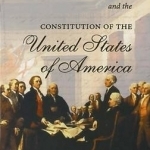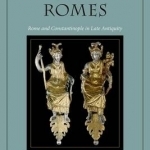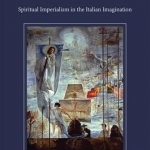
Saving a Sick America: A Prescription for Moral and Cultural Transformation
Book
Nationally syndicated radio host and columnist Michael L. Brown provides a handbook for a...
The Invention of Peter: Apostolic Discourse and Papal Authority in Late Antiquity
Book
On the first anniversary of his election to the papacy, Leo the Great stood before the assembly of...

The Early Victorian Railway Excursions: The Million Go Forth
Book
There is a widely held belief that Thomas Cook invented the railway excursion. In fact the railway...

Yusha Evans
Podcast
He was born and raised in Greenville, South Carolina in a very conservative Christian home. In his...

The Rev Diaries
Book
'A divine comedy' Daily Telegraph The Rev Diaries is the hilarious tie-in novel to the award-winning...
The Rev Diaries
Book
The Rev Diaries is the hilarious tie-in novel to the award-winning hit BBC1 comedy, Rev, starring...
Secularism: Politics, Religion, and Freedom
Book
Until the modern period the integration of church (or other religion) and state (or political life)...

The Declaration of Independence and the Constitution of the United States of America: Including Thomas Jefferson's Virginia Statute on Religious Freedom
Book
Never in history have 1,322 words held out such extraordinary determination to be free as those...

Two Romes: Rome and Constantinople in Late Antiquity
Lucy Grig and Gavin Kelly
Book
The city of Constantinople was named New Rome or Second Rome very soon after its foundation in AD...

Dante, Columbus and the Prophetic Tradition: Spiritual Imperialism in the Italian Imagination
Book
Exploring the diverse factors that persuaded Christopher Columbus that he could reach the fabled...
